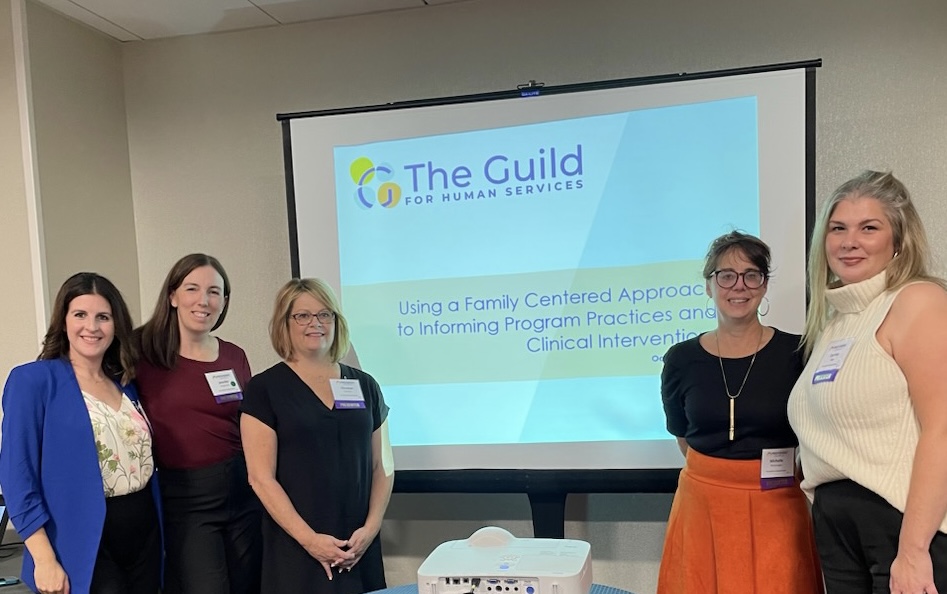Earlier this month, members of The Guild’s clinical and family services departments presented at the Providers’ Council’s annual convention and expo. Their presentation, Using an Interdisciplinary Family-Centered Approach, focused on how a family-centered service framework can improve outcomes for individuals with intellectual and developmental disabilities in residential programs.
Engaging families in decisions and treatment plans strengthens service provision. Activities that support family engagement include education and skill-building, involvement in direct clinical services, planning and decision-making, transition planning, and aftercare support.
"At The Guild, we recognize the importance of strengthening family bonds and involving parents and caregivers in their student's plan of care," said Christine Dimmick, Director of Admissions. "We were excited to be able to share relevant research and The Guild's philosophy around family engagement with other providers at the conference."
Presenters highlighted how The Guild employs these methods to engage families within both youth and adult programs. At The Guild School, staff spend time with families before their student’s admission to understand what they’re looking for in a residential program and how The Guild can best meet their expectations. Parents of both youth and adults can participate in advisory groups, hiring committees, lifespan planning and human rights groups. There are also opportunities for parents to attend trainings and support groups focused on relevant topics, like transitioning to adult services and navigating feelings of loss.
The workshop concluded with a discussion about the importance of using parent and caregiver feedback to inform clinical interventions. Presenter Corrina Riggs, Senior Clinical Advisor, has been engaging with families at The Guild around their experience with pain communication from their children as part of her doctoral work. From her research, there is a clear consensus that parents and caregivers want to be regarded as the experts in their child’s clinical care plan.
“Guild parents and caregivers have been willing, and even more than that, excited to participate in this project, and I think that speaks to the relationships and trust we’ve built starting at pre-enrollment," said Corrina.
The clinical field is evolving to establish the value of including caregivers as research partners. Consistent with The Guild’s longstanding values, we are on the forefront of including caregivers in the design of complex clinical interventions.
The Guild acknowledges caregiver input as valid. Involving parents and caregivers as partners aligns with the agency’s strategic plan goal of fostering relationships between families and staff to improve the quality of life and self-determination of residents and students.


